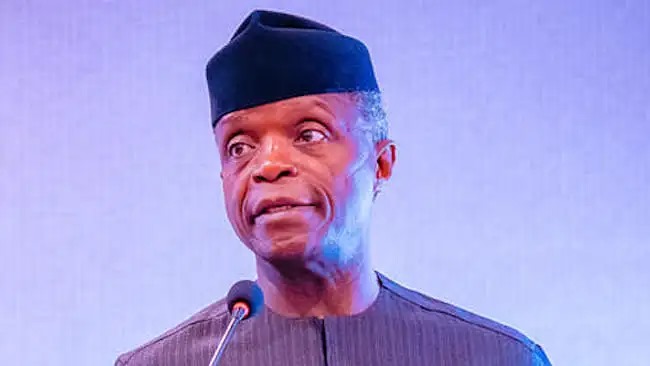Former Vice President Yemi Osinbajo delivered a stark warning to the Nigerian legal profession, characterizing it as crumbling under the weight of corruption, ethical breaches, and declining standards. Speaking at the Nigerian Bar Association’s 2025 Law Week in Yenagoa, Bayelsa State, Osinbajo lamented the widespread perception of corruption within the justice system, implicating both lawyers and judges. He highlighted the prevalence of lawyers acting as intermediaries for bribes and emphasized the damaging impact of this perception on the integrity of the legal profession. Osinbajo’s address underscored the urgent need for reform and visionary leadership to address these critical challenges.
Osinbajo’s address centered on the theme “The Legal Profession: A Vision for a New Era,” recognizing the transformative impact of technology, globalization, and societal changes on the legal landscape. While acknowledging the profession’s adherence to precedent and tradition, he stressed the necessity of adapting to the rapidly evolving environment. He argued that the legal profession must embrace new tools and approaches to remain relevant in a technologically driven world, as traditional methods are becoming increasingly obsolete. Osinbajo painted a picture of a profession struggling to keep pace with technological advancements, warning that resistance to change is no longer a viable option.
The former Vice President elaborated on the disruptive influence of technology, emphasizing how artificial intelligence and automation are reshaping legal practice. He noted that tasks traditionally performed by lawyers, such as legal research, document drafting, and basic legal analysis, are now being executed faster and more efficiently by AI-powered systems. This technological encroachment, according to Osinbajo, represents a profound revolution for the legal profession, one that will permanently alter the delivery of legal services and even the process of adjudication. He stressed the need for lawyers to adapt to this changing landscape by focusing on skills that machines cannot replicate, such as ethical reasoning, strategic thinking, and client advocacy.
Osinbajo advocated for a comprehensive overhaul of legal education to equip future lawyers with the skills necessary to thrive in this new era. He proposed integrating legal technology and AI into the curriculum, emphasizing the importance of critically evaluating the output of AI tools like ChatGPT. Furthermore, he stressed the need for cross-disciplinary training that combines legal knowledge with data science, design thinking, and an understanding of data privacy and algorithmic bias. This, he argued, would enable lawyers to effectively utilize and manage these powerful technological tools while upholding ethical standards.
Bayelsa State Governor Douye Diri, who opened the plenary session, acknowledged the anxieties surrounding AI’s growing influence, particularly the potential for job displacement. However, he emphasized the dynamic nature of society and the inevitability of technological advancements. Diri expressed his strong belief in the rule of law and the crucial role played by lawyers in upholding it. He praised the Yenagoa branch of the NBA for their active role in legal discourse and affirmed his commitment to respecting judicial independence. Diri’s remarks underscored the interconnectedness of the legal profession, the government, and the pursuit of justice.
The Chairman of the NBA Yenagoa Branch, Somina Johnbull, expressed gratitude to the distinguished guests, including the former Vice President and the Governor, for their participation in the Law Week. He emphasized the significance of the event as a platform for insightful discussions that would elevate the standards of legal practice across Nigeria. Johnbull’s welcome address highlighted the importance of continuous learning and dialogue within the legal community to navigate the evolving challenges and opportunities facing the profession.














